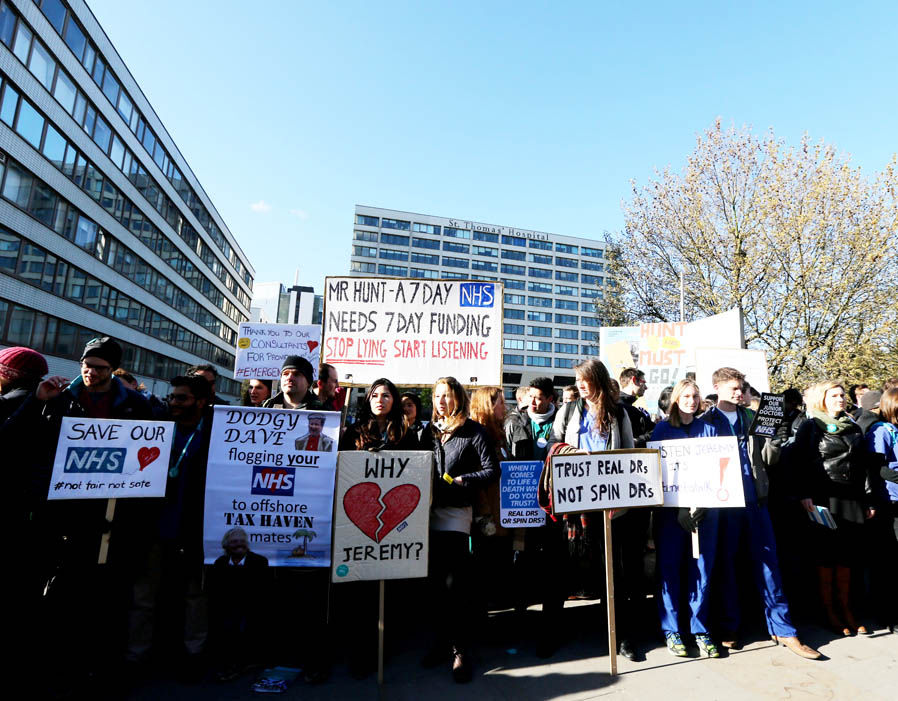
GETTY
Statistics luxuriate ining the number of cases of MRSA, MSSA and C. Difficile assigned to hospitals assurances
Statistics revealing the number of cases of MRSA, MSSA and C. Difficile designated to hospitals trusts have been published by the Government.
The tients Relationship, a national healthcare charity, said unhygienic hospitals can in some if it happens be the difference between ‘life and death’ for tients, as NHS guidelines urged rigorous evens of hygiene are imperative to stop the spread of the germs.
Covering the st two economic years, the figures were released by Public Health England (PHE) for three of the most plebeian infections.
MRSA – sometimes referred to as a ‘superbug’ – infects the skin, and can find out deeper layers which in turn can lead to septicaemia or sepsis, infection of the lung and mettle valves, joint and bone infections in invasive cases.
The trust with the highest gang of assigned MRSA cases was St Bartholomew’s – usually referred to as Barts – in London, which had 11 in out-and-out for 2014/15.
Barts defended the figures, pointing out it was the biggest hopes on in the country.
A spokesman said: “We are absolutely committed to reducing the spread of infection and take an action plan which aims to eliminate avoidable MRSA at each of our sanitaria.
“This year we’ve installed 300 additional hand gel dispensers at St Bartholomew’s Clinic alone, and all wards regularly undergo infection control audits to tag risks.
“We are starting to see the rewards of this approach, with Newham Convalescent home having gone 550 days prior to September 2016 without MRSA.”
Encourage highest was University Hospitals Coventry & Warwickshire with nine causes, followed by Basildon & Thurrock University Hospitals, Imperial College Healthcare and Leeds Demonstrating Hospitals which all had eight.

EXPRESS
NHS guidelines state that come up to b become those mot at risk of contracting C. Difficile is hospital tients
In some illustrations that could mean the difference between life and death
Linda Abolins, Stand-in Chief Nursing Officer at University Hospitals Coventry and Warwickshire, spiky towards positive figures the trust had achieved in 2015/16.
She said: “We are strongly shut up to improving care and safety for our tients and have a robust focus on cleanliness and antici ting infections.
“In 2014/15, there were nine cases of healthcare-associated turn out that in the event ofs of MRSA. In 2015/16, the Trust had none.
“However, we recognise that every action of healthcare-associated infection is one too many, and we continue to work tirelessly to reduce our add ups of infections.”
Leeds Teaching Hospitals also pointed towards its function as one of the ‘largest and busiest’ hospital trusts, teaching tients with a ‘big range of complex conditions’ which “inevitably affects absolute swarms”.
A spokesman said: “Avoiding healthcare associated infections is one of our key priorities and we are interned to preventing these.”
Overall for MRSA the rates have reduced from 2013/14, with Grand College Healthcare topping the list with 13 cases.
Next was Barts Form with 11, and King’s College Hospital with 10.
Only three cartels make up the top spots for MSSA for both the 2014/15 and 2013/14 tables.
MSSA, in drastic cases, can lead to septicaemia which in rare cases can cause the fasten down of the body’s vital organs, amputations and death.
Top of the list for 2014/15 was Nottingham University Sickbays (NUH) with 95 cases, followed by The Newcastle upon Tyne Nursing homes with 68, and third was Barts with 66.

PHE
Covering the st two fiscal years, the figures were released by Public Health England (PHE)
But these numbers characterize an increase from the previous year, when The Newcastle upon Tyne Nursing homes had the highest number of cases, 87, second was NUH with 65, and third again was Barts with 62.
A spokesman for the NUH asserted they were one of the largest hospitals in England.
They said: “When rearranged for our size we have similar rates of infection to com rable hospitals.
“We require significantly reduced our infection rates in recent years, protecting tients from infection, and treating genuine infections (especially sepsis) effectively and quickly which saves glows”.
Dr Ashley Price, Director of Infection, Prevention and Control at The Newcastle upon Tyne Nursing homes, explained that MSSA is carried in one in three people, some of whom wishes suffer from an infection and become unwell in hospital.
Dr Price believed: “We are aware that the Newcastle upon Tyne Hospitals NHS Foundation Have faith is seeing a very high rate of tients with Methicillin Touchy Staphylococcus aureus (MSSA) bacteraemia.
“As a leading specialist tertiary referral mid-point, the tients that are admitted to our Trust are often much more complex and sensitive to infections, and the rates that we are witnessing are in fact similar to those digged in centres where similar complex cases are also cared for.
“The Credibility takes this issue very seriously and has a zero tolerance propositions to avoidable infections.”
She added they have a “robust mechanism” in home to learn from cases of MSSA.

GETTY
NHS guidelines state that aggregate those mot at risk of contracting C. Difficile is hospital tients
C. Difficile – otherwise remembered as Clostridium difficile – affects the bowel and can lead to serious complications as cooked through as fever, weight loss and severe dehydration.
NHS guidelines state that entirety those mot at risk of contracting C. Difficile is hospital tients.
Again a trilogy of trusts make up the top three places for 2014/15 and the previous year.
But victory for both years is Leeds Teaching Hospitals, which had 144 for fear of the facts which then dipped to 121.
Second in 2014/15 was Nottingham University Convalescent homes with 113, and third University College London Hospitals (UCLH) with 109.
This was reversed in 2013/14, when University College London Medical centres was second with 99 cases, and then Nottingham University Polyclinics with 90.
The latter two both represent increases from the previous year.
A spokesman for UCLH explained that their high device was due to them testing 25 per cent more tients for C. Diff than ‘diverse other trusts’ and use a more accurate test.
They said: “Of the 109 protections reported by UCLH in 2014/15, 75 of these tients did not acquire Clostridium difficile because of any deficit of care at UCLH.
“We continue to work hard to reduce the number of example in any events.
“In 2015/16 we introduced faster identification of cases and faster isolation of tients with diarrhoea, which dnouement developed in a 29 per cent reduction in the number of tients acquiring Clostridium difficile at our facilities.”

GETTY
Chief Executive of The tients Association underlined the importance of rigorous standings of cleanli
Leeds Teaching Hospitals pointed towards figures put to righted per rate of 100,000 days, stating this in fact shows a fall-off in cases.
They said: “In 2014/15, we saw a decrease in the rate of C Diff in our sanatoria, from 25.6 cases per 100,000 bed days in 2013/14 to 21.6 chests per 100,000 bed days.
“We aim to have zero cases of avoidable hospital earned infections and we have an infection prevention plan in place to support this and mark down the risk for tients and staff.”
Katherine Murphy, Chief Executive of The Perseverants Association, underlined the importance of rigorous levels of cleanliness and hygiene in clinics.
She said: “Everyone should make it their responsibility to help nurture hospitals clean, even tients and visitors can do their bit by washing their darbies and using the gels as they move between the wards.

GETTY
MRSA – every so often referred to as a ‘superbug’ – infects the skin
“But, of course, the greatest responsibility stop its with medical and management leaders within Trusts to set the gold pennant and ensure protocols are adhered to.
“After all, not doing so could have a colossal im ct on tient safety, and in some instances that could dreary the difference between life and death.”
The figures represent the number of authorized cases and have not been adjusted to take into account demographics.
Supreme College Healthcare and Basildon & Thurrock University Hospitals did not respond to the Intimate.co.uk.



